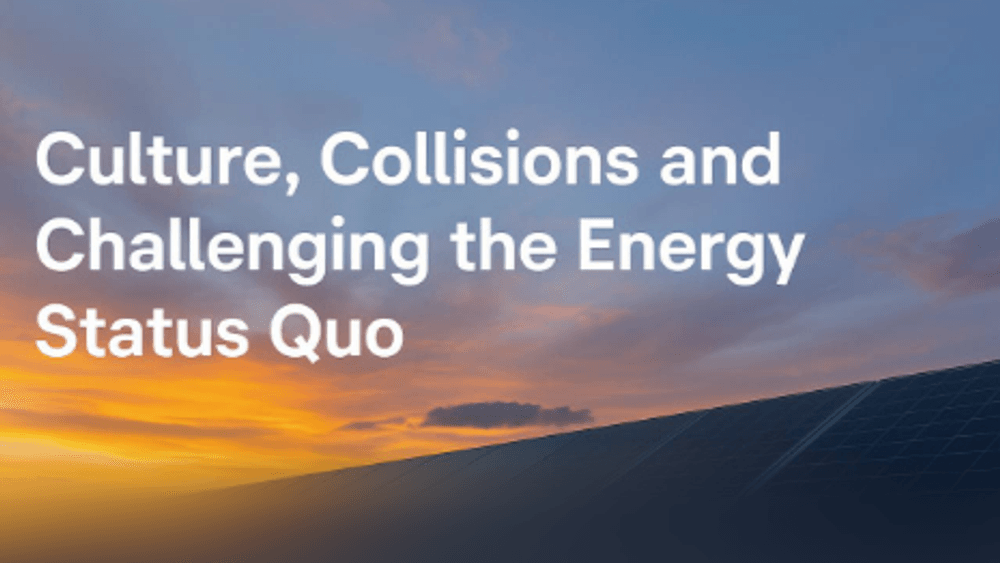Culture, Collisions and Challenging the Energy Status Quo
What founders can learn from tem Energy’s bold mission—and why timing, people, and culture matter more than ever.
What happens when a founder exits a high-growth startup, learns from inside a global energy giant like Shell, and then decides to build something even more disruptive?
You get tem Energy—a business built to challenge the very infrastructure of energy transactions.
I recently had the pleasure of speaking with Joe McDonald, Co-founder and CEO of tem, on the Leaders in Cleantech podcast. And while the tech behind tem is impressive, what really stood out was Joe’s clarity of thought on culture, leadership, and what it really takes to scale.
“Don’t be greedy”
That’s the piece of advice Joe credits with shaping both his fundraising strategy and his approach to building teams. Tem raised iteratively—starting with customers and angels—before bringing in VCs like Albion, Rivendell, and Atomico. The focus? Values-aligned investors, not just valuation.
But it’s in people and culture where this mindset really shines.
Tem’s first hire? A head of people. Not finance, not sales—people. As you would expect, I applaud this wholeheartedly, the right people, mission aligned and driven, are essential to success.
They’ve built an open structure: transparent salaries, dual-track progression for managers and experts, and KPIs linked directly to the company’s North Star. “If you’re not intentional about culture,” Joe said, “you’ll just end up with something accidental.”
As someone who's seen too many startups treat culture as an afterthought, this resonated.
From “green” to red
Tem isn’t just another PPA platform. They’ve built a new transaction layer—Rosso—that effectively bypasses the opaque wholesale energy market. Joe likens it to how Stripe reimagined payments: “We looked at energy and thought, this layer is fundamentally broken. Let’s rebuild it.”
Their model is refreshingly straightforward: businesses save 15–20% on their energy bills, generators earn more, and the black box of energy transactions gets replaced with traceability and AI-driven efficiency.
Their product is called “Red”—not greenwashing, not gimmicks. Just payment transparency.
“Power from the people to the people”
Joe is honest about timing. Yes, the post-COVID energy crisis helped. Yes, the AI wave made this model technically possible. But he also believes the energy transition needs more than tech.
“We’ve had the same energy dynamics since Standard Oil in 1890—centralised, controlled, opaque,” he said. “Just because it’s renewable doesn’t mean it’s fair.”
Tem’s mission is to decentralise not just electrons, but power—economic, social, and infrastructural. It’s a big bet, but one that aligns with a broader wave of energy system reimagination.
So what can we learn from tem?
Here’s what I took away:
- Execution beats ego. Joe and team don’t pretend to be the smartest in the room—they just focus on doing the hard things well.
- Timing matters, but readiness matters more. They recognised the moment—and moved fast with purpose.
- Culture is strategy. It’s not a deck slide; it’s how you scale, retain, and perform.
- Don’t optimise the edges. Fix the engine. Most clean energy startups play at the edges. Tem’s gone straight for the broken core.
Joe summed it up perfectly:
“We could have innovated at the edge and sold out. But we decided to fix the root layer. That’s where real change happens.”
I’m genuinely curious; when it comes to scaling teams, how much of what Joe shared around culture and structure resonates with your own experience or thinking?
Always interested to hear how others are navigating these shifts.



